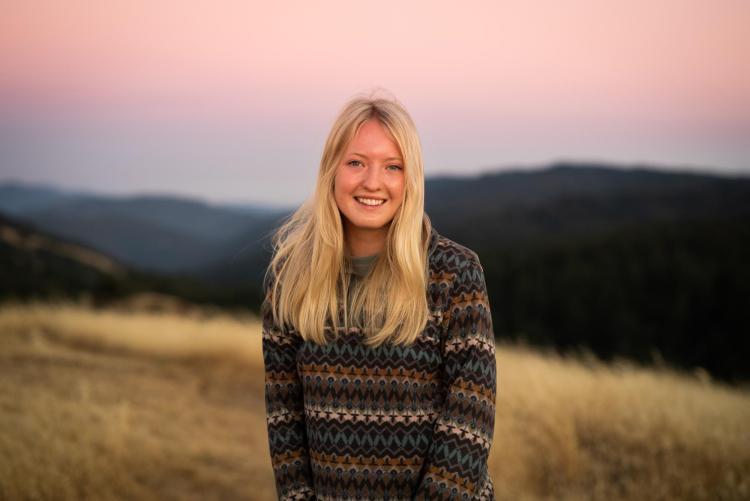Interning with Sandia National Laboratories
Katie Schutt is an undergraduate student in mechanical engineering. She is currently interning with Sandia National Laboratories.

Katie Schutt
Where are you working this summer and what made them stand out in your search?
Since the beginning of August I have been working remotely as a Virtual Technologies & Engineering Intern at Sandia National Laboratories. The intersection of entertainment and engineering is something that really interests me, so I was very excited to pursue this role where I use Unity (a video game engine) and Blender (a computer graphics software) to animate and model critical components.
What kinds of projects or tasks have you been able to contribute to? What does your day to day work look like?
I write scripts in C# and Python to animate and measure values within rigid body dynamics simulations. I am working on projects involving multidisciplinary teams where communication is critical to successful outcomes, so animations utilizing augmented reality (AR) and virtual reality (VR) can allow for a deeper understanding and improve that communication.
How has what you've learned in your classes showed up in your work? Did you have any "aha!" moments when you realized you could draw on class material?
My introductory experiences with programming through high school robotics and my freshman computer science course CSCI 1320 were really helpful. When I started the internship I was comfortable using IDEs and different methods of debugging code because of those experiences. When I was first learning Unity and Blender, I used the materials from my dynamics and physics courses to practice designing rigid body dynamic simulations.
What advice would you have for other students interested in working or interning in a related field?
While typical two or three month summer internships are still wonderful opportunities, I would also explore roles beyond them like co-ops or internships you can reasonably continue part-time during the school year. In my experience, the first few weeks of an internship consists of learning how to be a productive employee within your organization and catching up on software, hardware, and testing skills. The ability to continue working on those skills in a professional environment can be really beneficial to their growth.
I'd also recommend using your resources to connect with someone who works in places you are interested in learning more about: search for CU Engineering alumni on LinkedIn, attend career events, mention your interests and job search, seek out current interns or alumni employees from organizations you are involved in.

